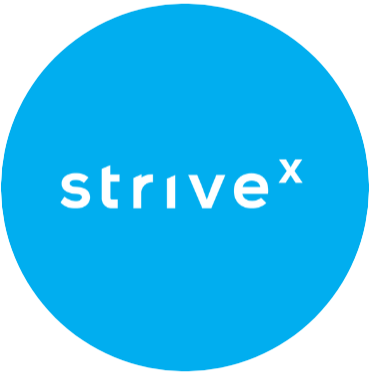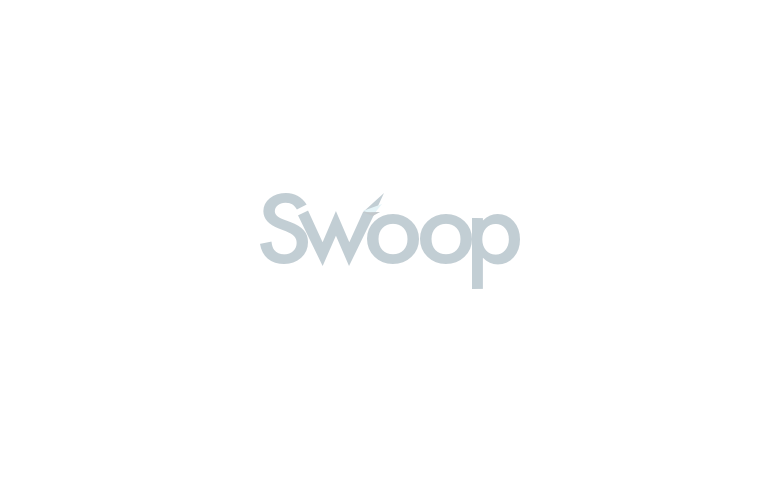With sales of liquor expected to grow every year for the rest of this decade, opening a liquor store may seem like a slam dunk – and if you do your homework right it can be. However, liquor stores are among the most regulated retail businesses in Canada, with laws covering every aspect of the operation. Add in expensive inventory, strong competition, high licensing costs and increasingly savvy customers and it doesn’t take much imagination to see that operating a liquor store can also be hard work.
But let’s suppose your business dream is to own your own liquor store no matter what. How do you get there, what hurdles must you cross and most importantly, what will it cost? Let’s find out. Read on to discover all you need to know about opening a liquor store.
How do I start a small liquor store?
Opening a small liquor store comes with the same fundamentals as opening any kind of store, you can either start from scratch with a brand-new business, or you can buy an existing liquor store with an established customer base. However, that’s about as far as the similarities go, because opening a new liquor store or taking over an existing store can be one of the most challenging of retail ventures.
Why is this?
- Liquor stores must be licensed at the local, state and federal level. Depending on where your store is located, licensing costs can run into the hundreds of thousands of dollars, although $10,000 is more typical.
- You’ll need good security to protect your premises and fragile stock and insurance to cover loss by accident, theft, or disaster as well as any liability to customers, employees and suppliers. You may also need liquor liability cover that protects your inventory from specific events, such as rapid temperature change or cross-contamination.
- Liquor store inventory can be expensive to buy. Some specialist wine and spirits retailers carry stock worth $millions. You’ll also need to learn about different types of alcoholic beverage and shape your offerings to your clientele. Today’s liquor store customers are more discerning and well informed than they were only twenty years ago. They will expect you to know a lot about the products you sell.
- Alcoholic drinks are heavily taxed. You will need to collect and pay taxes to various governing agencies. This can mean a lot of regulatory paperwork and you will probably need to invest in purpose-built software to do the calculations for you.
- Beer, wine and spirits are sold by many types of retailers, not just specialist liquor stores. Big box stores, supermarkets and discount chains typically sell these types of products on low margins, making their profits through high volume. If you’re operating a small liquor store it is unlikely that you can compete on either price or volume, so you will need to find other ways to make customers choose your store – rare brands, tastings, expert knowledge, wine clubs etc.
- Lastly, your liquor store will be subject to ever-changing laws on alcoholic beverages. (For example, age-identifying laws – also known as ‘card laws’ – where you are legally required to check the age of younger customers). You must stay on top of these regulations to avoid fines or penalties that could see you lose your license.
However, despite these issues, there is plenty of good news for budding liquor store owners: Firstly, if you get the basics right, running a small liquor store can deliver good income – typically delivering a profit margin of 15% to 20% and annual profits of $300,000 to $1million. Secondly, liquor stores can be a good bet for a number of other compelling reasons:
- Demand for liquor is constant – customers continue to buy regardless of season or the state of the Canadian economy.
- Liquor products have long shelf-life – you don’t have to worry about expiry dates.
- You can sell liquor in-store or online – your customers can be near or far and wide.
- High set-up costs for liquor stores keeps competition down – pick the right location and you may have the area all to yourself.
How to open a liquor store: Step by step
Key steps to open a liquor store include:
1. Write a business plan
If you’re seeking external investment or a commercial business loan to open your store, you will need a detailed business plan to support your pitch or application. Investors and lenders will want to know why you need their funds and what the money will do for your new store. Business plans should do more than paint a rosy picture – explain the risks involved, what the downsides could be – and how you intend to overcome them.
Even if you don’t need investment or a loan, a business plan can still be a very useful vital tool. Use it as your business manual, referring to the contents to guide your strategy and manage your financials.
Find out more about creating your business plan here.
2. Find the store or location you want to buy or rent
Where your store is located can have a major impact on the success of your business. Take the time to research different locations, measuring the competition and the size of the local population. You want a store in an area where foot traffic is high and local incomes can support your store and the kind of drinks you sell. Once you have a target area, you can either look for vacant store units to lease, or you can look for an existing liquor store that is up for sale.
Starting in a vacant unit will cost less than buying an established business, but you will have to build your customer base from scratch – that will take time and more cash for marketing. Also, will your working capital be able to cover the time lag until your sales reach breakeven? If you choose to buy an existing liquor store, make sure you ask all the right questions and inspect the books carefully. Critically, you need to know why the owner is selling. Are they retiring or is the business struggling – if the latter, find out why.
3. Get funding
If you don’t have enough cash on hand to launch your new business on your own, you’ll need funds from investors or lenders. Many new businesses get started using financial support from friends and family, but if that’s not an option, there are networks of venture capitalists and angel investors readily available online. Bringing in external investment can give you the cash you need to get your liquor store off the ground but be aware that investors will usually want a piece of the action in exchange for their money. This means you will need to give up a share of your ownership and you may lose overall control of the business.
With a business loan you don’t have to surrender a share of your store to get the funds. Although it’s never easy for new businesses to borrow money, some lenders have special products and programs for startups and entrepreneurs. These types of financing include:
- Term loan – this is a lump sum that you pay back over time. Borrow up to $5million over as long as 25 years. Collateral may be required.
- Business line of credit – a loan that functions like a high-value credit card. Withdraw cash anytime up to the maximum of your credit limit. You only pay interest on the sum you withdraw, not the whole line. This can significantly reduce your borrowing costs. Collateral may be required.
- Merchant cash advance – borrow against the value of your credit/debit card sales. As your card sales increase, your credit limit goes up. Pay the loan back with a small percentage of your weekly or daily card sales. No added collateral is required.
- Equipment loans use the asset you’re financing as security, similar to a car loan or a residential mortgage, so no added collateral is required. Buy machinery, furniture, technology, etc. Use the equipment as you pay for it.
To get these types of loan you can approach banks, credit unions and online lenders one by one, or you can use the services of a loan marketplace that will immediately introduce you to a choice of startup loans from different lenders. Some marketplace platforms can also give you advice and help you with the application process. This can be especially useful for borrowers who have never taken out a startup loan before.
4. Register your business
You’ll need to register your liquor store with local, state and federal authorities. But before you do that, you’ll need a name for the business. You’ll want a name that is not taken by another organisation, as infringing on someone else’s brand name and copyright could end up in a costly lawsuit.
You will also want a website and branded email addresses for your store. Check to see if your preferred company name is also available as a domain name. If your domain name is available, you should be able to buy it via any of the advertised web hosting services.
Once you’ve settled on a name, you must decide if you want to run the business as a sole proprietorship, an LLC or a corporation. Although it involves more paperwork, operating as a corporation can protect you if the business does not succeed, as you are not personally responsible for the company’s debts. If you choose this route, you must submit your articles of incorporation to the secretary of state’s office in the state where you register. You can do this in-person, online, or by mail. You will have to pay a registration fee at the time of filing – typically $100.
5. Get licenses and permits
Liquor stores are governed by a host of laws, and you will need to get the necessary licenses and permits. Don’t be tempted to start trading without the proper licensing as that can lead to large financial penalties or even prosecution.
How much does it cost to open a liquor store?
Opening a liquor store is not cheap. Even if you choose to start with a brand-new store instead of buying an existing business, licensing and permits can cost $10,000 or more. Then you have the physical expenses such as store leasing, fit-out costs, utilities, equipment and initial inventory. On top of this are employee wages, training costs and marketing and advertising. Legal expenses and insurance can also cost several $thousand. Add it all up and starting a new liquor store will typically cost at least $100,000. If you choose to open your business in a major city, or you opt to buy an existing and successful liquor store, the upfront costs can be many hundreds of thousands or even a few million dollars.
How much does it cost to stock a liquor store?
Liquor stores can carry expensive stock, with some rare or specialist brands or vintages costing several hundred dollars per bottle. Even if you choose to focus on cheaper drinks, such as craft beers, you will still need a good selection of brands and plenty of inventory.
At the end of the day, how much you spend stocking your new store will depend on who your target market is, what your main products are (wine, beer, spirits, etc.), and what your average price point is. The more high-end you are, the more your stock will cost. On average, new liquor store owners aiming for mid-market customers can expect to spend at least $35,000 on initial inventory.
How Swoop can help
Running your own liquor store can be lucrative and a lot of fun, but you’ll need a lot of liquid cash to get you there. Funding is where Swoop can really help. No matter if you’re launching a brand-new liquor store, or you’re buying an established business, chances are you’ll need finance to make the operation grow. Many types of business loans are suitable for liquor stores, but working with finance experts can make all the difference when applying for funding. Contact us to discuss your borrowing needs, get help with loan applications and to compare high-quality business loans from a choice of lenders. Make your liquor store the toast of the town. Register with Swoop today.













 yet? Register here!
yet? Register here!